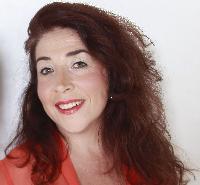| Pages in topic: [1 2 3 4 5] > | Is it possible for an adult to learn a new language perfectly? Thread poster: Balasubramaniam L.
|
|---|
Balasubramaniam L. 
India
Local time: 11:01
Member (2006)
English to Hindi
+ ...
SITE LOCALIZER
In one of the threads in another forum the issue of learning a new language as an adult came up which had interesting possibilities for discussion. But as it would have caused a major digression from the main vein of that particular thread it was suggested that a new thread be begun under this forum to discuss this issue.
Many people claim that they learned six or seven languages in adult life. Is this possible? Is it possible to learn even one new language properly after you have c... See more In one of the threads in another forum the issue of learning a new language as an adult came up which had interesting possibilities for discussion. But as it would have caused a major digression from the main vein of that particular thread it was suggested that a new thread be begun under this forum to discuss this issue.
Many people claim that they learned six or seven languages in adult life. Is this possible? Is it possible to learn even one new language properly after you have crossed the threshold of 13 or15 years of age? Here we are not talking about rudimentary knowledge of a few sentences or a basic vocabulary of a language, but near-native competency.
It was my understanding - and I am neither a linguist, nor a scientist - that the current belief of science is that languages can only be learned perfectly in the first few years of one’s life.
I invite people with linguistic training and knowledge - as well as others, of course - to respond to this thread and to dispel any pseudo-science involved in this matter.
[Edited at 2006-10-29 04:05] ▲ Collapse
| | | | | | Sophia Hundt (X) 
Local time: 00:31
Russian to English
+ ...
I properly learned my first foreign language (English) when I was seventeen and after teaching myself Toefl and SAT, was admitted to an all English-language college next year. I then proceeded to learn French, German, and Bulgarian. Now, my knowledge of those is not perfect, but pretty darn good, at least good enough to let me work professionaly and be fairly successful. Of course, this is not exactly native-speaker knowledge, but boy, not too far off. I am now teaching myself Farsi.
[Edi... See more I properly learned my first foreign language (English) when I was seventeen and after teaching myself Toefl and SAT, was admitted to an all English-language college next year. I then proceeded to learn French, German, and Bulgarian. Now, my knowledge of those is not perfect, but pretty darn good, at least good enough to let me work professionaly and be fairly successful. Of course, this is not exactly native-speaker knowledge, but boy, not too far off. I am now teaching myself Farsi.
[Edited at 2006-10-29 04:48]
I wanted to add that it's a combination of a natural gift, hard work, and immersion.
[Edited at 2006-10-29 04:50] ▲ Collapse
| | | | Balasubramaniam L. 
India
Local time: 11:01
Member (2006)
English to Hindi
+ ...
TOPIC STARTER SITE LOCALIZER | Pretty much my view too | Oct 29, 2006 |
James Davis wrote:
No
That was pretty much my view too.
Again I repeat that I am no scientist and what I write below is culled from my readings, can't even furnish any solid references for them.
The number of brain cells you have at the age of five is more than the number of brain cells you have at 20, which is more than what you have at 40, which is more than... and so on.
New brain cells are added only till the age of five, after which these cells begin to slowly die off during the course of one's life. This is the reason why people go senile as they grow old and lose memory.
A human being learns about 90 per cent of all that he is going to learn in his life, by the age of 5, which includes language skills.
In later years, he/she merely uses the knowledge acquired in the initial years in various permutations and combinations to infer conclusions. In other words, the base knowledge is chiefly what he/she acquires in childhood. Adding to it in later years is very difficult, if not impossible.
Talking in terms of hardware, the wiring of the brain is completed in the initial years of life, and it is not possible to alter it in later life to any substantial level.
The above is a layman's understanding of bits and pieces of scientific stuff he has read here and there.
Other points to consider:
Often people who have heart attaks etc, often get portions of their brain damaged, leading to slurred speech, lack of control over limbs, etc. But many of these people regain partial control over their deficiencies. Does this mean that the brain wiring is repairable? If so, does this also hold a ray of hope for people wanting to learn new languages?
I am no scientist or a linguist, so I don't know. I will wait for the answers of more knowledgable people to elucidate me on this point.
[Edited at 2006-10-29 05:11]
| | |
|
|
|
| Critical periods in biology and psychology | Oct 29, 2006 |
Ok Let's develop that No.
Sophia, your English is pretty damned good and I should know, I'm English and I've been teaching it for a long, long time, but what Balasubramaniam said was "perfect" Sophia. Do you ever think you will be better at a second language than you are at your first? And then, How old were you when you started to learn English. Your English isn't too clear there.
Anyway, Balasubramaniam I like most people here at Proz know two second languages pretty "d... See more Ok Let's develop that No.
Sophia, your English is pretty damned good and I should know, I'm English and I've been teaching it for a long, long time, but what Balasubramaniam said was "perfect" Sophia. Do you ever think you will be better at a second language than you are at your first? And then, How old were you when you started to learn English. Your English isn't too clear there.
Anyway, Balasubramaniam I like most people here at Proz know two second languages pretty "damn" well, as Sophia put it, but I came to a point in life, where I knew I would never come near that level of perfection I have in my native tongue and I think this is what you are alluding to. And in years of teaching and learning languages and travelling the world I have never met a person who had learnt another language perfectly in adult life. When you ask, you find they always started as children.
A long time ago I took a degree in experimental psychology. I can still remember some of it. The principles. There is a theory in biology and psychology that if an organism (a plant, animal or human being) has not accomplished something by a certain time as it is growing, then after that period it will be too late. Usually there is a certain period before which and after which it is not possible. As a theory, its difficult to test on humans. Take vision for example. The experiment would be to take two groups blindfold one group from birth to the age of ten... No you can't do that. So we don't know if there is a critical period for vision. Personally, I was half blind for the first year of my life (I can see well now) and then I had an operation and had glasses strapped on me. As a consequence, my handwriting is still a disaster even today and I was the last in my age group to catch a ball. There was probably something I missed in that first year, after which it was too late.
Most psychologists agree I think that children learn language in a different way to adults. It's obvious if you think about it. First they just listen, 12 hours a day for 18 months. Then they start to speak (not read, not write). They never study grammar or rules. They couldn't because they don't have the ability to understand complex logic, like hypothetical conditionals, "if I were you, I would do this" for example. Children pick it up intuitively, not logically. Then, think about it. I'm intelligent. I'm good at languages. It took me five years to learn to speak English as a child, listening to it for eighteen months and speaking it for another three and a half. I went to school and within a year, I could write elementary texts and within 12 years I could write at university level. So I reached the level of "highly educated native speaker - perfect - in 18 years". I've now been living in a foreign country (Italy) for much longer. I'm "pretty damn good" at Italian, but I still make mistakes and there particular mistakes. If you teach a language as a foreign language, you soon find yourself explaining that there are two types of mistake. The type that a native speaker might make, "He is more quick" (the sort of thing US news reader might even say) for example instead of "He is quicker" and another type which a native speaker would never say, "He quixk is".
Adults, however, can learn much faster than children. Studying, working and living in the target language, a fair level of proficiency can easily be attained in a year. However, I'm not sure this is true for all people. Often I have had adults, in beginners classes, who have already had 7 years of English lessons. Years ago in Seychelles (native language is Créole), all languages were taught in English (now they have changed, they teach in Crèole). Of those generations (now adults) about a third speak very well, they speak "Crèole" English, the english they were taught (by teachers who were not native speakers) perfectly. Another third, I would say manage to communicate in English and another third are simply uneducated and illiterate because they couldn't/didn't learn English.
It's a fascinating subject, but the answer must be No.
Jim ▲ Collapse
| | | | suvasree
Local time: 11:01
English to Bengali
+ ...
| What do you mean by "perfectly"? | Oct 29, 2006 |
Dear Balasubramaniam,
I think the critical word in your statement is "perfectly". Would you clarify what you mean by that? I am a Bengali and Rabindranath Tagore was a Bengali. I hope you would never say that I know Bengali as "pefectly" as Tagore did! You can extend this analogy and apply it to other languages. Do you think every Englishman is a Shakespeare or a John Keats?
Now, if you come down from that raised pedestal of the "ideal", I would say yes, a language can... See more Dear Balasubramaniam,
I think the critical word in your statement is "perfectly". Would you clarify what you mean by that? I am a Bengali and Rabindranath Tagore was a Bengali. I hope you would never say that I know Bengali as "pefectly" as Tagore did! You can extend this analogy and apply it to other languages. Do you think every Englishman is a Shakespeare or a John Keats?
Now, if you come down from that raised pedestal of the "ideal", I would say yes, a language can be learnt reasonably "perfectly" (so as to acquire what you term as "near-native competency") later in life. My French teacher started learning French in his mid-thirties. He was a teacher of Bengali then. He fell in love with that language, studied it seriously, in Calcutta and then when he was at Sorbonne for higher studies. I have seen him conversing with perfect ease with other French teachers who were French nationals. Now he lives in France and of course he has learnt French "reasonably perfectly"! Perhaps all of us here have such examples before us.
I have an imperfect knowledge of the English language. But, I believe, we learn throughout our lives and certainly I couldn't have written this note when I was five or 10! Not even in Bengali! So, may be, my knowledge of English has improved even after the age you mentioned. Yet I am aware that the goal would remain beyond my reach and I enjoy this journey towards an unreachable ideal.
Perhaps this is a purely theoretical discussion. I am not a scientist but common sense tells me that certainly it would be more difficult to learn a new language later in life and that may not be due only to the decreasing number of brain cells. But it is not impossible. As regards your "perfectly", well....Everyday I come in contact with scores of Bengalis including myself. Have we learnt our mother tongue perfectly?
Regards,
Suvasree ▲ Collapse
| | | |
Balasubramaniam wrote:
The number of brain cells you have at the age of five is more than the number of brain cells you have at 20, which is more than what you have at 40, which is more than... and so on.
Balasubramaniam,
This is true, but there is a simpler and clearer way to put it. Almost all cells in the body reproduce, they split and divide into two except for nerve cells (which includes all the neurons or brain cells). Nerve cells don't reproduce (or didn't until recently see below). So you have most when you are born. Any that die (and they say a cigarette kills about thirty - you have billions, so don't worry if you smoke, mind you alcohol kills a lot more ). ).
Balasubramaniam wrote:
New brain cells are added only till the age of five, after which these cells begin to slowly die off during the course of one's life.
Don't know where you got this from, but I wouldn't read any more of it. Type "new brain cells" into Google and read.
This quote is from here.
http://www.brainlightning.com/regen.html
"For many years it has been a bedrock principal of neuroscience that all 100 billion of our brain cells exist at birth, that the adult human brain cannot grow new cells and that memory works by a rewiring of old brain brain cells rather than by growing new brain cells to record new data. As of 10/15/99 this is now in question. On that date Princeton neuroscientists Elizabeth Gould and Charles Gross published a study in Science dealing announcing their discovery of the daily growth of new brain cells in the adult macaque monkey brain
"A human being learns about 90 per cent of all that he is going to learn in his life, by the age of 5, which includes language skills."
Hmm if you can develop a general theory of learning which can measure all acquired knowledge, which is to say measure learning, then they will probably give you a Nobel.
However. according to standard neuropsychology, the brain cells, or neurons as they are called, that you are born with are not connected to each other; they are not "wired up". They are just little blobs with no "dendrites" or "ganglions", which are like roots and branches which grow out and connect with other neurons.
Have a look here.
http://www.usm.maine.edu/psy/broida/101/neuron.JPG
By around the age of 5 most are wired up except for those in the front part of the brain, the frontal lobe. It was thought (and perhaps now it has been firmly established) that this part of the brain deals with higher learning, abstract thought, hypothetical reasoning and generalisation. This part doesn't even start to develop until the age of five and isn't really fully developed until the age of around 12 or 13.
Before, the age of five we learn that we live in a 3D world. We learn to see and to walk and to manipulate things with our hands. We learn a vital concept, far from obvious, which is that of constancy. This is that when something disappears from view. It doesn't actually disappear. A very young baby loses interest in something, if for example you cover it with a handkerchief, then at a later period in life, it looks under the handkerchief (The famous Swiss psychologist was the first to discover this stuff). Before the age of five we learn to talk. From the age of 5 to 12-13, the brain develops the wiring which distinguishes us from chimpanzees and apes, it becomes able to learn how to write and to reason. How do use formal logic, mathematics (what is needed for algebra, geometry, the concept of zero).
Ironically, it would seem that during this period it loses the ability to learn a language in the same way that it learnt its native tongue.
Jim
[Edited at 2006-10-29 06:50]
| | | | | I don't think it goes by the number of brain cells | Oct 29, 2006 |
Hi Balasubramaniam,
There's another piece of information going round, that we only use a small percentage of our brain cells, e.g. less than one per cent. Based on this, there are various seminars in existence, for business people, about how to tap into the brain cells and start using two per cent, or whatever, in order to become an academic genius.
That apart, I don't know what foundations I had for learning German. I was brought up in England, speaking English all the... See more Hi Balasubramaniam,
There's another piece of information going round, that we only use a small percentage of our brain cells, e.g. less than one per cent. Based on this, there are various seminars in existence, for business people, about how to tap into the brain cells and start using two per cent, or whatever, in order to become an academic genius.
That apart, I don't know what foundations I had for learning German. I was brought up in England, speaking English all the time, but, since my mother is German, I heard plenty of German spoken prior to the age of five, between my mother and her sister. However, I consider that I was pretty old by the time I became near-fluent in German. This did not happen when I was a child.
I also think that I have had German ingrained in me at a much deeper level only in the past 10 years, and as a result of all the translating.
Astrid ▲ Collapse
| | |
|
|
|
Rosa Enciso 
Germany
Local time: 07:31
Member
German to Spanish
+ ...
| Near-native competency: yes | Oct 29, 2006 |
I think it's possible, but it doesn't mean everbody is able to, because it depends on many factors.
In my case I grew up with Spanish and French. At home I spoke Spanish (with my parents) and French (with my sisters). Outside, only French. Nobody could tell that I have first learned French at the age of six.
And then I learned a new language at the age of 24: German. Now It's been 15 years since I live Germany. My husband is German, everything around me is German. I thi... See more I think it's possible, but it doesn't mean everbody is able to, because it depends on many factors.
In my case I grew up with Spanish and French. At home I spoke Spanish (with my parents) and French (with my sisters). Outside, only French. Nobody could tell that I have first learned French at the age of six.
And then I learned a new language at the age of 24: German. Now It's been 15 years since I live Germany. My husband is German, everything around me is German. I think and also dream in German. Sometimes it's easier for me to express things in German. I think by now I have acquired a near-native competency. But of course, there are always situations in which I (or the people) notice that I didn't grow up in Germany. The learning process is not finished yet and will probably never do.
In my case, maybe the fact of being bilingual has made me more receptive for a new language. And as Astrid said, the fact of working as a translator also has an influence.
Anyway, that's my experience.
Have a nice Sunday ▲ Collapse
| | | | Heinrich Pesch 
Finland
Local time: 08:31
Member (2003)
Finnish to German
+ ...
When aging you start to lose the aquired languages gradually, finally even immigrants who lived most of their lives in a secound language environment need nurses who speak their childhood language.
Brainscans show, that aquired language funcions reside around those locations where the native language resides. So that's why they are functionally not equal. But nerves can be trained, that's why it is possible that you eventually can get more fluent in a second language, if you do not use you... See more When aging you start to lose the aquired languages gradually, finally even immigrants who lived most of their lives in a secound language environment need nurses who speak their childhood language.
Brainscans show, that aquired language funcions reside around those locations where the native language resides. So that's why they are functionally not equal. But nerves can be trained, that's why it is possible that you eventually can get more fluent in a second language, if you do not use your first language most of the time.
It is possible though for a grown-up to aquire language skills of a higher degree than most of the population, because of exceptional abilities, but at the same time this person will be viewed still as non-native, because of small clues in speech and language use.
Most natives nowadays have a very limited ability to express themselves, reading speeds are decreesing all the time at high-school level.
Regards
Heinrich ▲ Collapse
| | | |
Hi Balasubramaniam,
I think unless you know the exact function of each brain cell, its possibilities and how it works together with other cells, you can never say anything for sure. Probably we do accumulate knowledge until a certain age and then start consuming it, to begin losing it in an advanced age, but it can hardly be tied with the physical growth and destruction of brain cells. The growth of cells may just be providing a container for a person to fill it later on in his/her ... See more Hi Balasubramaniam,
I think unless you know the exact function of each brain cell, its possibilities and how it works together with other cells, you can never say anything for sure. Probably we do accumulate knowledge until a certain age and then start consuming it, to begin losing it in an advanced age, but it can hardly be tied with the physical growth and destruction of brain cells. The growth of cells may just be providing a container for a person to fill it later on in his/her life. For example the formation of our body is completed at a certain age, and we can’t grow taller after that age, but it doesn’t mean that we can't become stronger, heavier, slimmer, etc. Body is a container that probably provides some limits, but we know that we are far from reaching these limits. Maybe the knowledge obtained while the brain cells are growing is something like the unmovable (system) files that we have on the computer, whereas the knowledge obtained after it may change. Who knows! But even is so, we can’t say that one cannot build a near-native level of some new language on the changeable cells. Just think about someone who has lived in some country until the age of five, and then, in six or seven, has moved to another country. I know such people, most of them cannot speak the language they used to speak until the age of five, and the new language has become their mother tongue. So here’s another problem. We need to find an acceptable definition for mother tongue and find out if it’s always the same as native level. If we assume that mother tongue is the tongue that we used when we were learning to talk, than it may be different from the language we speak on native level, because many people may have just forgotten their mother tongue, after moving to some other country, and it may be something like the memories of childhood or forgotten dreams. ▲ Collapse
| | | | esing (X)
India
Local time: 11:01
Malayalam to English
+ ...
There seems to be no threshold age limit for learning a language.
Speaking, listening, writing and reading are more important. If one gets opportunity for all this, at any age there would be no problem in learning a language.
For example during my early schooling there was no opportunity to listen or to speak English properly. During those times even radio was very rare. One do not normally get chance to listen to good English language programmes through radio in the ... See more There seems to be no threshold age limit for learning a language.
Speaking, listening, writing and reading are more important. If one gets opportunity for all this, at any age there would be no problem in learning a language.
For example during my early schooling there was no opportunity to listen or to speak English properly. During those times even radio was very rare. One do not normally get chance to listen to good English language programmes through radio in the village in India, where I lived. Then, later on, I got regular chance to watch English movies. That was how all famous actors of that time like Gregory Peck, Peter Sellers, Elizabeth Taylor, Sophia Loren, Marylyn Monroe, and Marlon Brando etc. turned out to be my informal teachers of English.
I learnt Spanish much alter through books while I was around 40 years of age. There was no difficulty. However, opportunities very rarely arise in India to listen to anybody speaking Spanish or to speak to a person. That did not deter me. Whenever I happen to meet persons from Spanish speaking countries during meetings and conferences they tend to get surprised when I inform them that I learnt Spanish through books.
I do not claim to be an expert in Spanish. However, since I know English very well, I am able to express in English what I understand from written or spoken Spanish. ▲ Collapse
| | |
|
|
|
Jussi Rosti 
Finland
Local time: 08:31
Member (2005)
English to Finnish
+ ...
| I'd say yes, but requires a lot | Oct 29, 2006 |
For example, if you have an university level knowledge of the language and are very interested in the cluture of that country, read a lot of literature, poetry and children books, watch the local movies, (also children movies) and especially soap operas and family serials that show the "inside life" of the natives... and have a native spouse, lot of local friends, and close contact with native children, preferably your own... why not? won't even take so many years.
For example, I g... See more For example, if you have an university level knowledge of the language and are very interested in the cluture of that country, read a lot of literature, poetry and children books, watch the local movies, (also children movies) and especially soap operas and family serials that show the "inside life" of the natives... and have a native spouse, lot of local friends, and close contact with native children, preferably your own... why not? won't even take so many years.
For example, I got A+ grade on highest level (of 8 ), "Native Speaker" after some years of Polish studies (no background before that whatsoever). While this grade doies not say much, please note that I never lived in Poland by then and I met just some of the requirements I described above.
If my romance with my Polish girlfried would have resulted in me moviing there and marrying her, I'm quite confident I'd be extremely close to a native speaker by now.
Sure, but love is needed ▲ Collapse
| | | | abufaraz
Pakistan
Local time: 10:31
English to Urdu
+ ...
| Near native competency can hardly be achieved, I think | Oct 29, 2006 |
I remember, during my college days our Persian (Farsi) lecturer told us about a personal experience which he had during his visit to Iran as a member of a delegation of Farsi teachers/linguists.
One day when they were invited by a famous Irani scholar at his home and were sitting in his courtyard, they saw a boiling pot on a stove placed in the side of the Veranda. The lid of the pot was about to fall due to steam. My teacher told us that in spite of being an MA in Farsi linguistic... See more I remember, during my college days our Persian (Farsi) lecturer told us about a personal experience which he had during his visit to Iran as a member of a delegation of Farsi teachers/linguists.
One day when they were invited by a famous Irani scholar at his home and were sitting in his courtyard, they saw a boiling pot on a stove placed in the side of the Veranda. The lid of the pot was about to fall due to steam. My teacher told us that in spite of being an MA in Farsi linguistics and a fluent speaker of Farsi, neither he nor his other fellows could find a comprehensive word for this situation so as to call and tell the host or his wife who were both inside the house somewhere. So, being reluctant to use some weak or wrong words and thus expose their incompetency in front of their host Professor, they kept quiet.
Just at the same moment, the daughter of the host who was merely 5-6 years old and was palying outside, entered the house running and on seeing the pot she shouted at once, " Mama! Mama! Degcha...............ast!!" (Our teacher told us the word, but I'm sorry, I have forgotton it) and this was just the proper farsi word expressing the position of the pot exactly, which didn't come in the minds of those expatriate linguists but a native minor used it instantaneously and without any difficulty.
What I mean to say is that the 'mother tongue' native competency can hardly be achieved by a foreigner.
Regards ▲ Collapse
| | | | Annissa 7ar
Argentina
Local time: 02:31
English to Spanish
+ ...
| I think it is possible !!! | Oct 29, 2006 |
I think it is possible to learn a new language being an adult.
It depends on several conditions, as motivation, the reason for acquiring new knowledges about it, the needs, etc.
Not all the people has the same talents for languages, as not all people has talents for music, dancing, sports. etc. It is no a subject, of definitely Yes, or No, as I said before, it depends on different aspects.
In my experience, I have taught many adult people, and they have learnt w... See more I think it is possible to learn a new language being an adult.
It depends on several conditions, as motivation, the reason for acquiring new knowledges about it, the needs, etc.
Not all the people has the same talents for languages, as not all people has talents for music, dancing, sports. etc. It is no a subject, of definitely Yes, or No, as I said before, it depends on different aspects.
In my experience, I have taught many adult people, and they have learnt with a lot of interest and good results, children have their own natural abbility, but I insist, it is a personal matter.
annissa
Balasubramaniam wrote:
In one of the threads in another forum the issue of learning a new language as an adult came up which had interesting possibilities for discussion. But as it would have caused a major digression from the main vein of that particular thread it was suggested that a new thread be begun under this forum to discuss this issue.
Many people claim that they learned six or seven languages in adult life. Is this possible? Is it possible to learn even one new language properly after you have crossed the threshold of 13 or15 years of age? Here we are not talking about rudimentary knowledge of a few sentences or a basic vocabulary of a language, but near-native competency.
It was my understanding - and I am neither a linguist, nor a scientist - that the current belief of science is that languages can only be learned perfectly in the first few years of one’s life.
I invite people with linguistic training and knowledge - as well as others, of course - to respond to this thread and to dispel any pseudo-science involved in this matter.
[Edited at 2006-10-29 04:05] ▲ Collapse
| | | | | Pages in topic: [1 2 3 4 5] > | To report site rules violations or get help, contact a site moderator: You can also contact site staff by submitting a support request » Is it possible for an adult to learn a new language perfectly? | Anycount & Translation Office 3000 | Translation Office 3000
Translation Office 3000 is an advanced accounting tool for freelance translators and small agencies. TO3000 easily and seamlessly integrates with the business life of professional freelance translators.
More info » |
| | CafeTran Espresso | You've never met a CAT tool this clever!
Translate faster & easier, using a sophisticated CAT tool built by a translator / developer.
Accept jobs from clients who use Trados, MemoQ, Wordfast & major CAT tools.
Download and start using CafeTran Espresso -- for free
Buy now! » |
|
| | | | X Sign in to your ProZ.com account... | | | | | |













